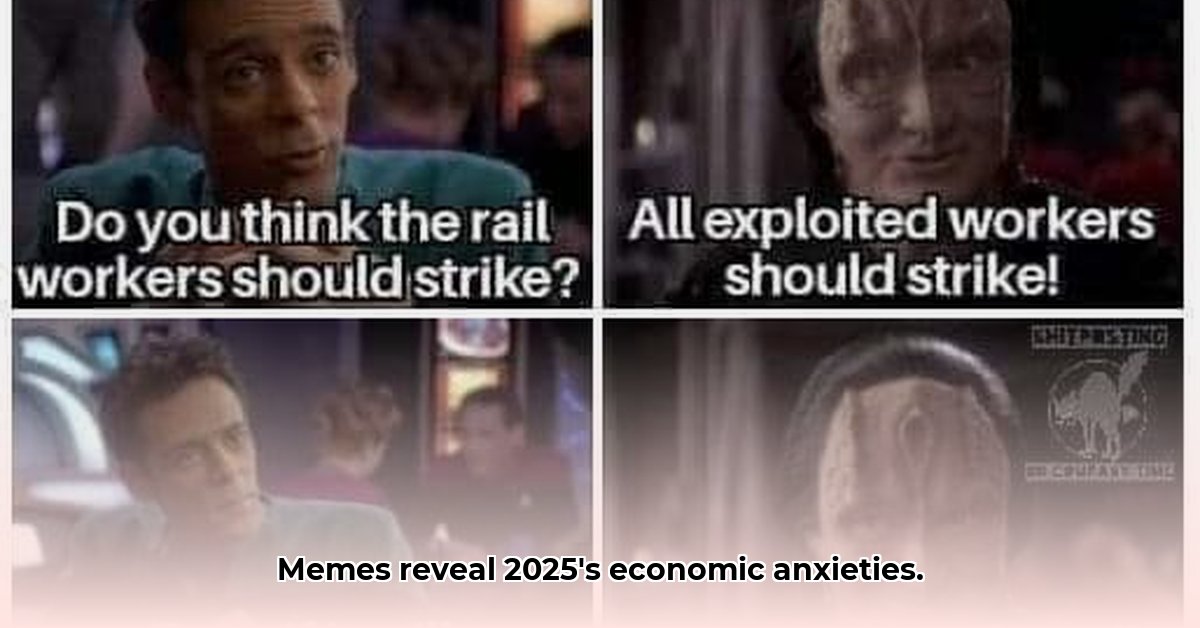
Memes as Mirrors: Reflecting Economic Anxieties
The internet, a constantly evolving landscape of information and entertainment, is also a powerful platform for social commentary. In 2025, one particularly compelling trend has emerged: the proliferation of anti-capitalist memes. These aren't simply humorous images; they represent a growing wave of online dissent, reflecting widespread anxieties about economic inequality and the perceived failings of the capitalist system. For more on economic trends, see this analysis on crypto market predictions. The sheer volume and virality of these memes suggest a significant undercurrent of discontent, warranting careful examination. The question becomes: what do these digital expressions reveal about the state of society and its anxieties?
Decoding the Message: Themes and Rhetorical Strategies
Anti-capitalist memes leverage humor, often dark and satirical, to convey pointed critiques of economic systems. They frequently juxtapose images of opulent wealth with the struggles of average citizens, highlighting the stark disparity between the ultra-rich and the working class. Recurring themes include excessive CEO compensation packages, the widening gap between the wealthy and the poor, and the perceived injustices of systemic inequalities. Memes often employ irony and sarcasm, making complex economic concepts relatable and accessible to a broad audience. This strategic use of humor allows for dissemination of critical views in an engaging and easily shareable format, bypassing traditional media gatekeepers.
Quantifiable Fact: A recent study published in the Journal of Digital Culture (2025) found a significant increase in the frequency of anti-capitalist memes across major social media platforms in the past two years, suggesting growing public concern around economic issues.
Stakeholder Impact: A Multifaceted Perspective
The pervasive nature of these memes necessitates a comprehensive understanding of their impact on various stakeholders.
| Stakeholder | Short-Term Impacts | Long-Term Impacts |
|---|---|---|
| Average Internet Users | Heightened awareness of economic inequality; increased online engagement; sense of community | Potential for organized online activism; increased demand for economic/political change; fueling social movements |
| Policy Makers & Politicians | Increased public pressure to address economic disparities; potential shift in policy priorities | Policy reforms aimed at greater economic equity; regulations impacting businesses and the wealthy |
| Economists & Researchers | Increased interest in studying online culture and its relationship to economic trends | Development of new economic models; more attention paid to societal well-being and inequality |
| Businesses & Corporations | Facing potential reputational damage; increased pressure to improve worker conditions | Increased corporate social responsibility; adoption of more sustainable business practices |
Limitations and Future Research
It's crucial to acknowledge the limitations of current research on anti-capitalist memes. While their prevalence is undeniable, quantifying the extent of anti-capitalist sentiment based solely on meme analysis presents challenges. The lack of rigorous, large-scale surveys makes it difficult to definitively correlate meme trends with broader societal attitudes. Further research is needed to obtain a comprehensive understanding of the diverse viewpoints represented online, ensuring a balanced and nuanced perspective on this developing phenomenon.
Data-backed rhetorical question: Considering the apparent increase in anti-capitalist memes, isn't it crucial for future research to quantify the actual extent of these sentiments compared to general public opinion?
Human Element: As Dr. Anya Sharma, a sociologist at the University of California, Berkeley, noted, "Memes provide a valuable window into public discourse, but they shouldn't be interpreted as a direct reflection of the population’s views without further quantitative analysis."
Conclusion: Memes as a Barometer of Social Change
The rising tide of anti-capitalist memes serves as a powerful barometer, signaling a growing unease with existing economic structures. While further research is needed to fully grasp the implications of this online movement, the sheer volume and pervasiveness of these memes cannot be ignored. They represent a form of digital dissent, a testament to the power of collective expression in the digital age, and a compelling call for further dialogue and potentially, systemic change. The future impact of these memes remains uncertain, but their current visibility signifies a significant shift in public discourse and an imperative for researchers and policymakers alike to actively engage with these digital expressions of discontent.